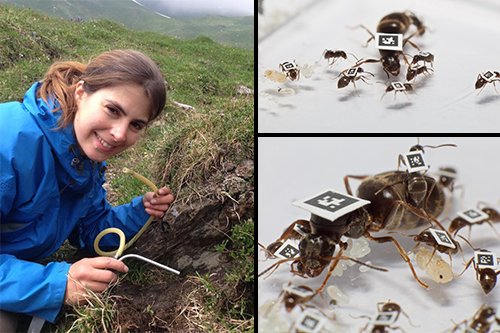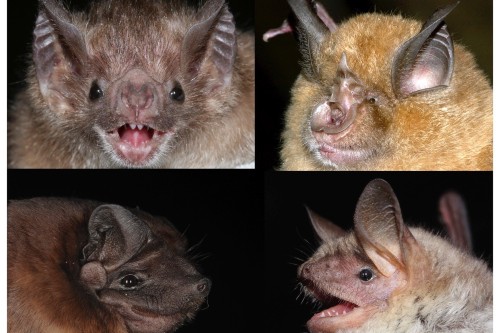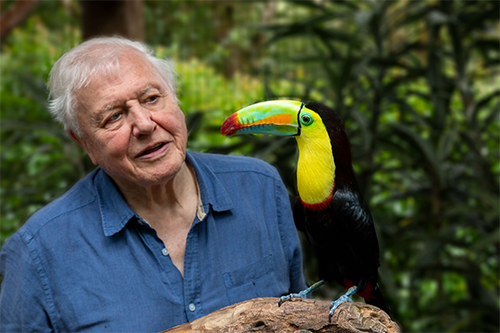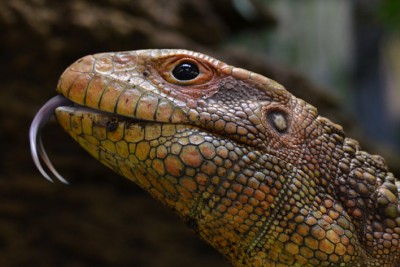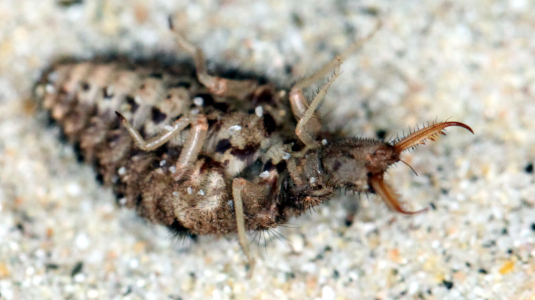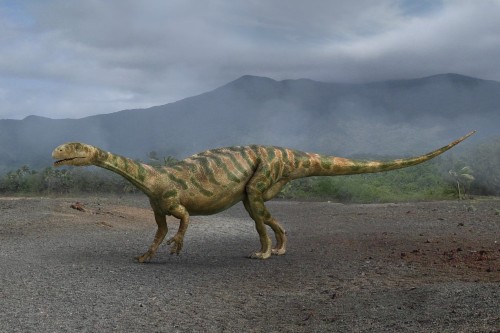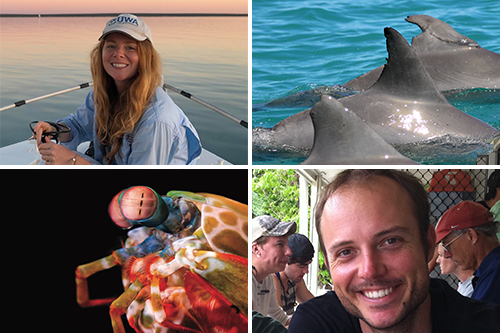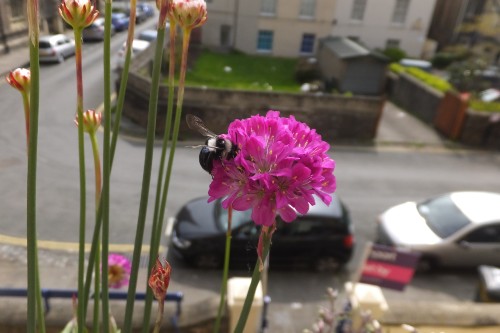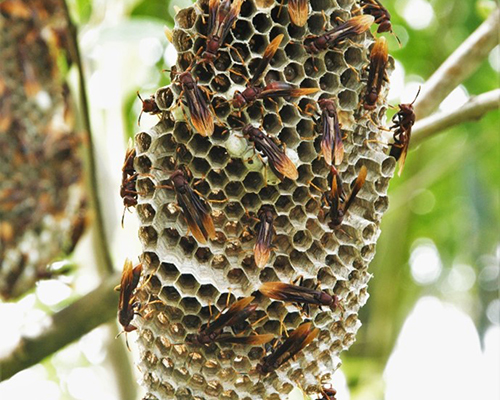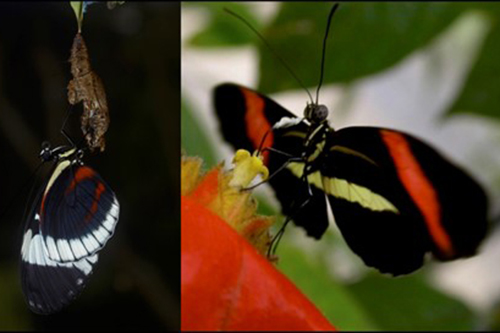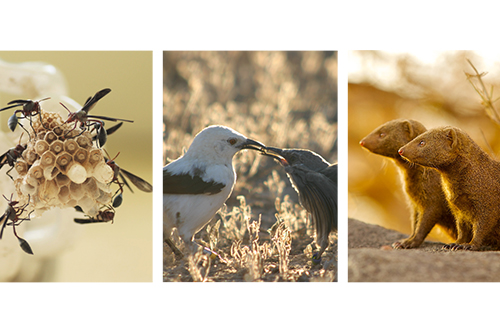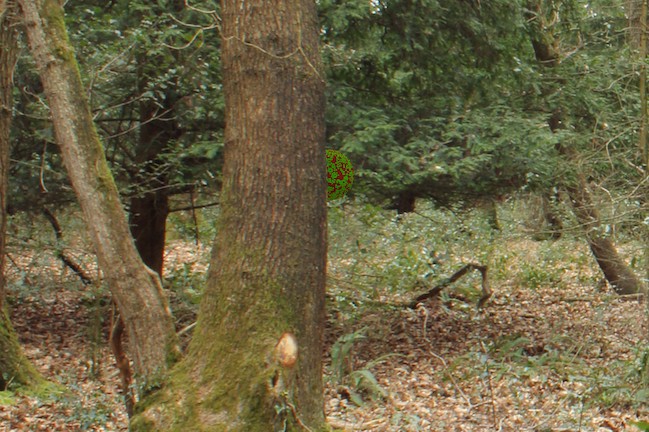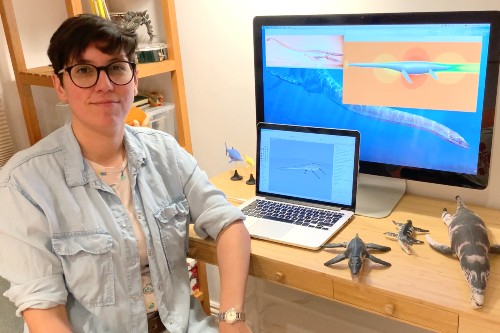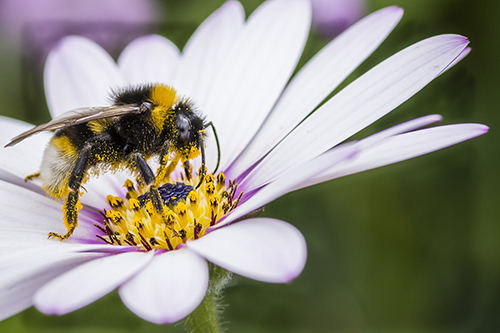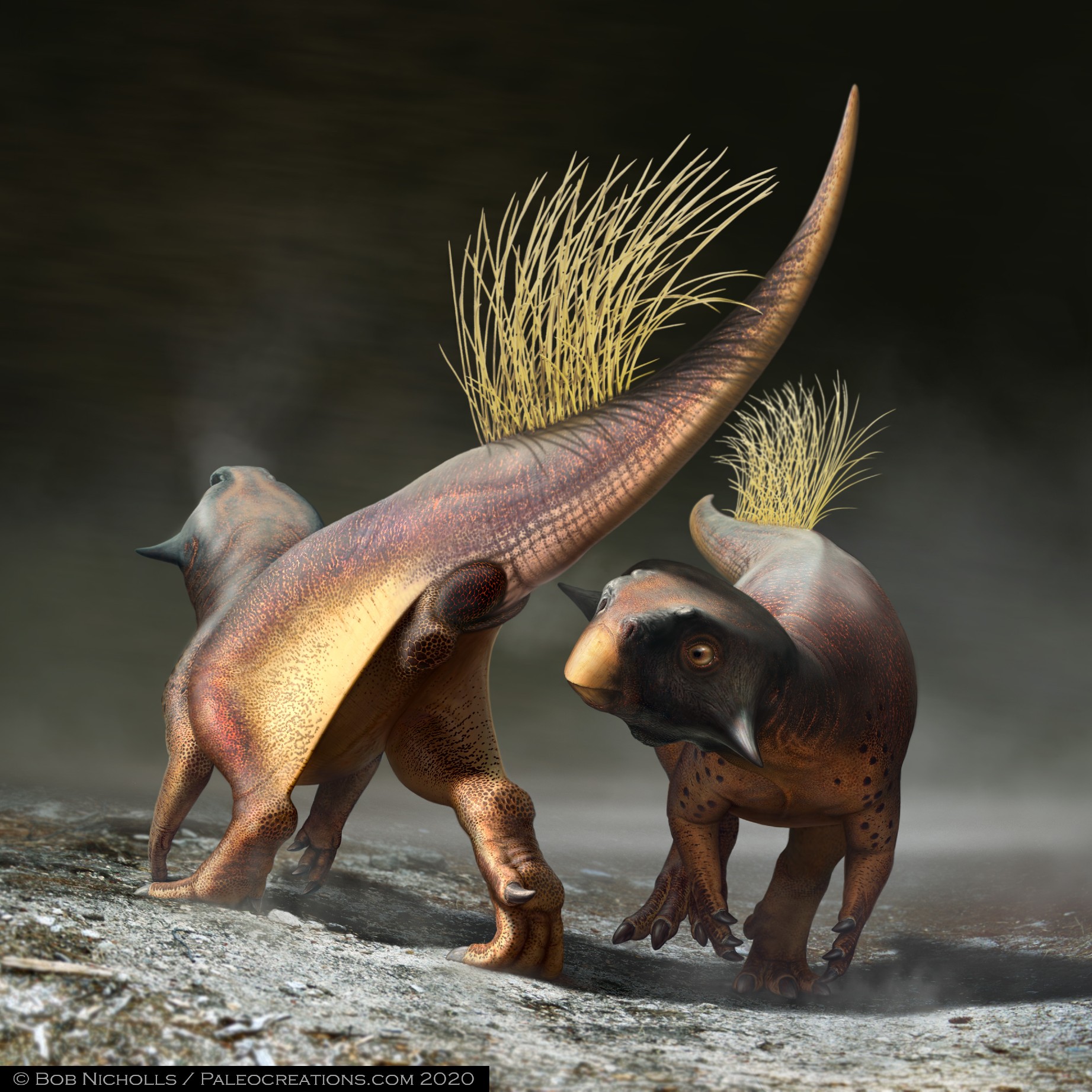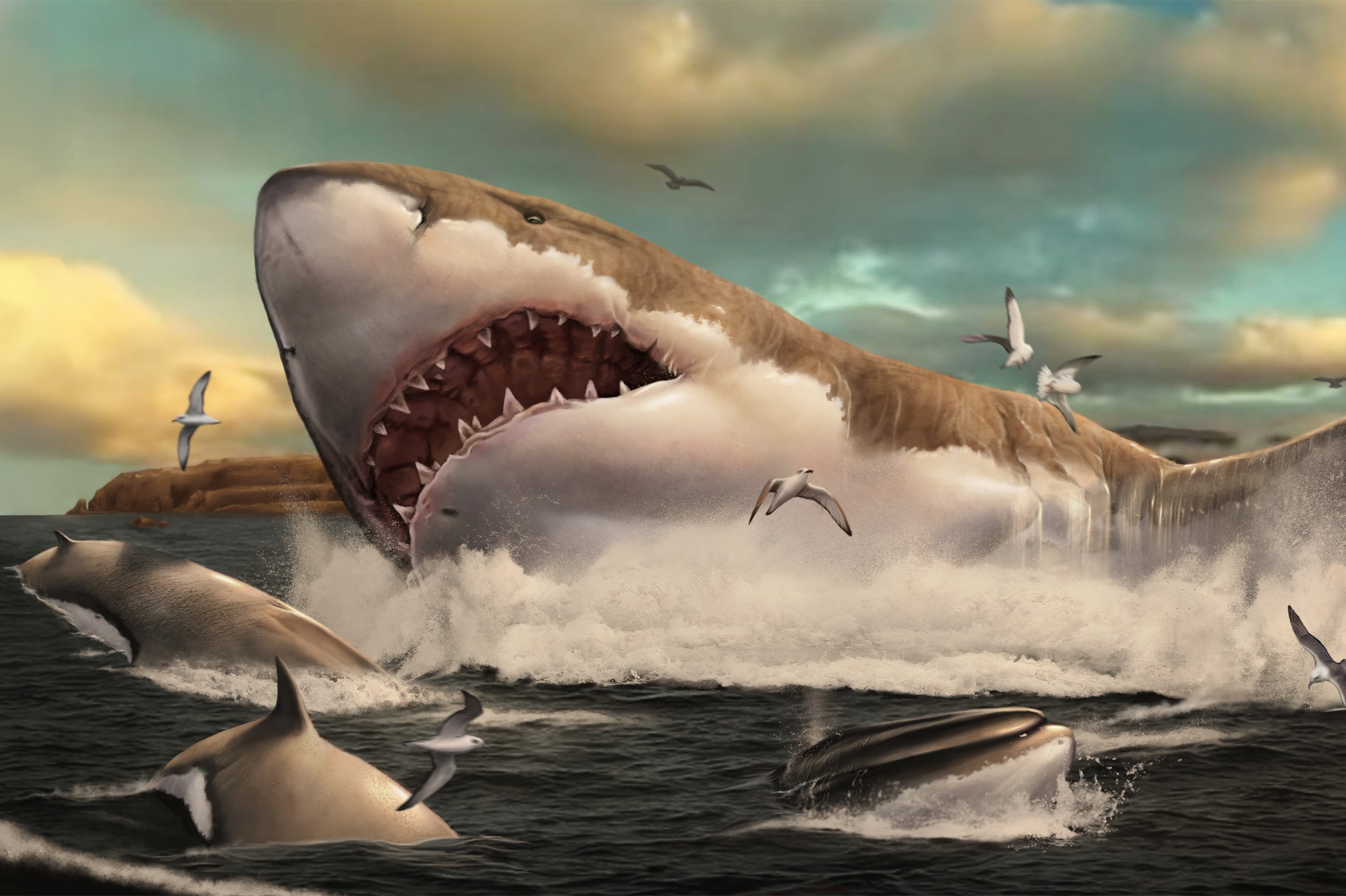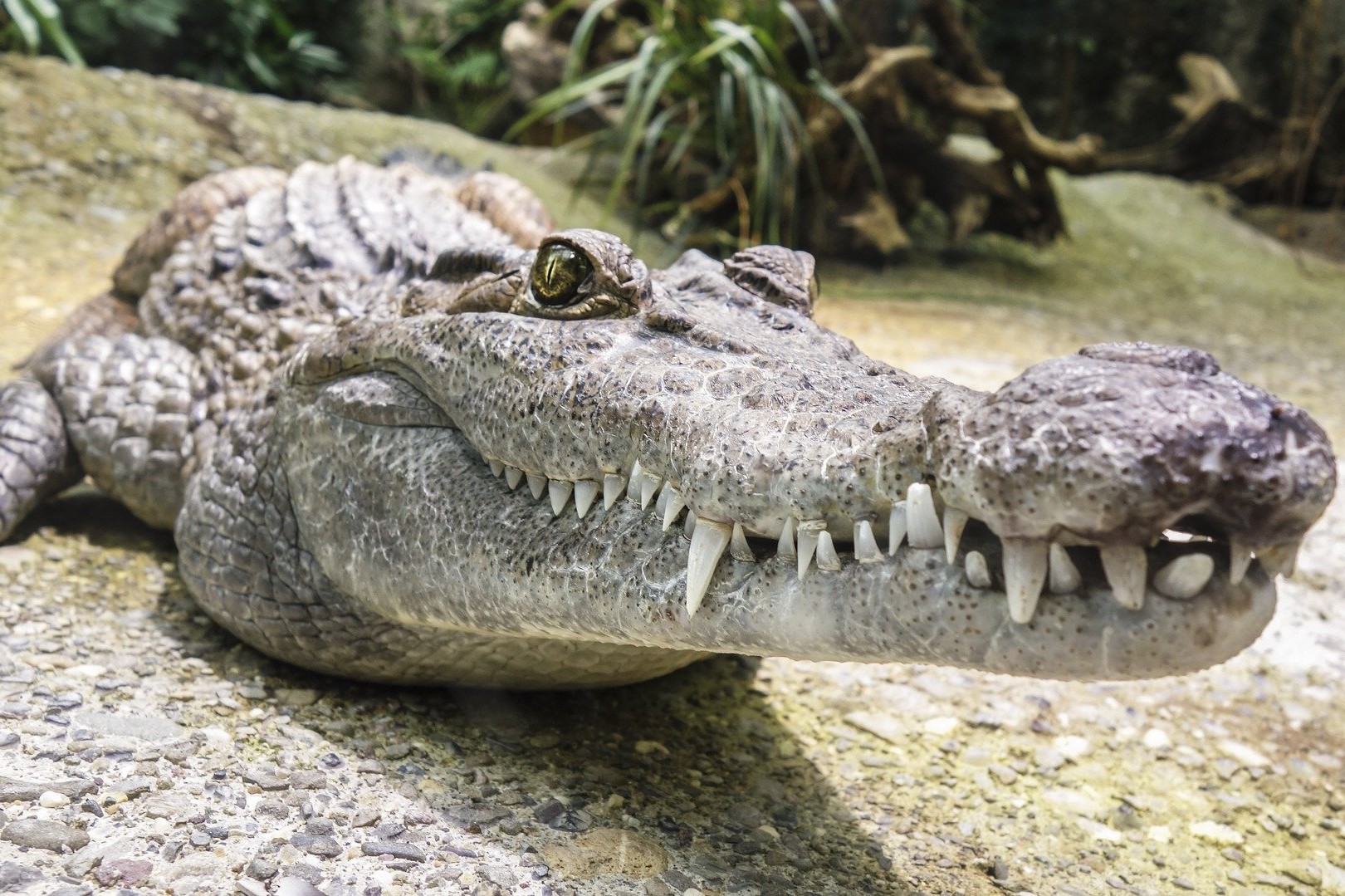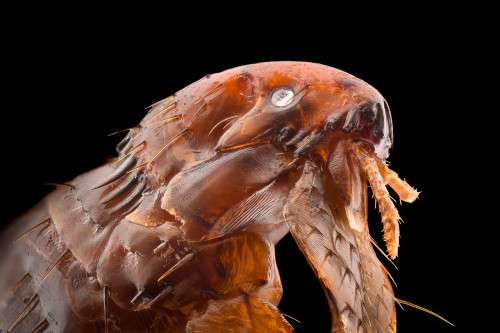- Ants socially distance too! BBC’s Chris Packham unveils University of Bristol research 16 March 2021 Humans are not the only species to socially distance when disease hits their community, research from the University of Bristol reveals.
- Accurate Aging of Wild Animals Thanks to First Epigenetic Clock for Bats 15 March 2021 New research by the University of Bristol as part of a team led by the University of Maryland (UMD) identifies age-related changes to DNA, revealing longevity-related differences among bat species.
- Attenborough series reveals University research into how animals see the world 4 March 2021 A wildlife series narrated by Sir David Attenborough is beaming research by several University of Bristol academics into living rooms around the world.
- Cutting-edge analysis of prehistoric teeth sheds new light on the diets of lizards and snakes 3 March 2021 New research has revealed that the diets of early lizards and snakes, which lived alongside dinosaurs around 100 million years ago, were more varied and advanced than previously thought.
- Animals fake death for long periods to escape predators 3 March 2021 Many animals feign death to try to escape their predators, with some individuals in prey species remaining motionless, if in danger, for extended lengths of time.
- Pioneering prehistoric landscape reconstruction reveals early dinosaurs lived on tropical islands 1 March 2021 A new study using leading edge technology has shed surprising light on the ancient habitat where some of the first dinosaurs roamed in the UK around 200 million years ago.
- Bristol researchers feature on captivating BBC Two wildlife series 22 February 2021 Fascinating research by two University of Bristol academics features in a new BBC Two wildlife series.
- Pioneering research reveals gardens are secret powerhouse for pollinators 22 February 2021 Home gardens are by far the biggest source of food for pollinating insects, including bees and wasps, in cities and towns, according to new research.
- Tropical paper wasps babysit for neighbours 16 February 2021 Wasps provide crucial support to their extended families by babysitting at neighbouring nests, according to new research by a team of biologists from the universities of Bristol, Exeter and UCL published today [15 February] in Nature Ecology and Evolution.
- All in the head? Brains adapt to support new species 9 February 2021 Scientists studying forest dwelling butterflies in Central and South America have discovered that changes in the way animals perceive and process information from their environment can support the emergence of new species. The study led by the University of Bristol, and published today [9 February] in the Proceedings of the National Academy of Sciences (PNAS), has implications for how new species might evolve and the underappreciated role of changes in the brain.
- Healthy oceans need healthy soundscapes 5 February 2021 Oceans were once filled with the sounds of nature, but overfishing, climate change and human noise have fundamentally changed the natural underwater "soundtrack", researchers say.
- How to blackmail your family 3 February 2021 Raising kids can be tough, and sometimes you need all the help you can get. Biologists at the University of Bristol argue that some animals might be able to blackmail reluctant relatives into assisting with the rearing of young. The study is published today [2 February] in The American Naturalist.
- New research demonstrates how the best camouflage can be found for an arbitrary environment 22 January 2021 A new method, developed by scientists at the University of Bristol can determine the optimal colouration pattern to cover an object in order to make it as visible or concealed as possible, in any given environment.
- Double win for PhD student at major science meet 22 January 2021 A PhD student has scored twice at a major international science conference, winning prizes for best talk and best poster.
- Common pesticides stop bees and flies from getting a good night’s sleep 21 January 2021 Just like us, many insects need a decent night’s sleep to function properly, but this might not be possible if they have been exposed to neonicotinoid insecticides, the most common form of insecticide used worldwide, suggests research by academics at the University of Bristol.
- All-purpose dinosaur opening reconstructed for the first time 20 January 2021 For the first time ever, a team of scientists, led by the University of Bristol, have described in detail a dinosaur’s cloacal or vent – the all-purpose opening used for defecation, urination and breeding.
- Research reveals how teeth functioned and evolved in giant mega-sharks 13 January 2021 A pioneering study by University of Bristol researchers finds that the evolution of teeth in the giant prehistoric shark Megalodon and its relatives was a by-product of becoming huge, rather than an adaptation to new feeding habits.
- Research explains why crocodiles have changed so little since the age of the dinosaurs 7 January 2021 New research by scientists at the University of Bristol explains how a ‘stop-start’ pattern of evolution, governed by environmental change, could explain why crocodiles have changed so little since the age of the dinosaurs.
- Study resolves the position of fleas on the tree of life 5 January 2021 A study of more than 1,400 protein-coding genes of fleas has resolved one of the longest standing mysteries in the evolution of insects, reordering their placement in the tree of life and pinpointing who their closest relatives are.
